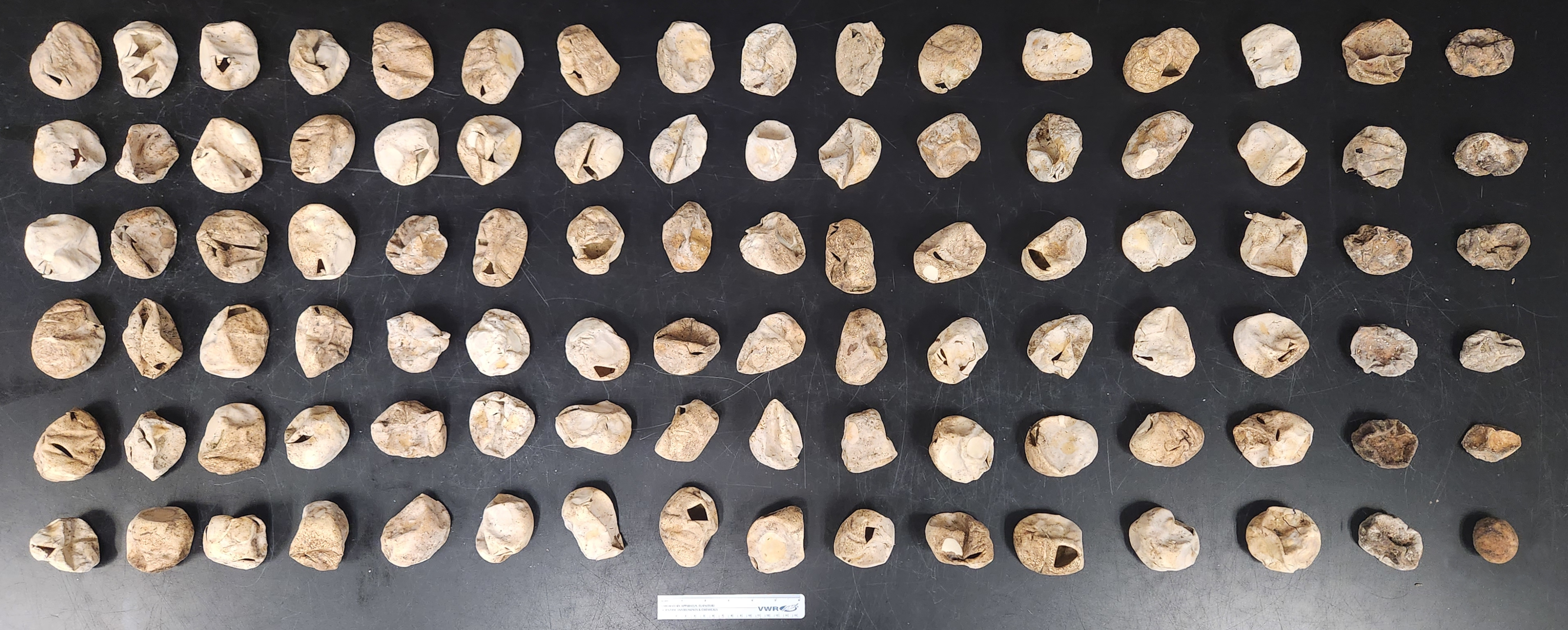Move over, Octomom: you’ve just been outdone by a factor of 12. And sure, granted, the super-fertile newcomer is a Burmese python rather than a human – but still, at 96 eggs, this reptilian new mom is a record breaker among her species.
“To our knowledge, this is the largest clutch size ever documented for a free-ranging Burmese python,” Amy Yackel Adams, from the US Geological Survey team responsible for tracking and monitoring the new python mother, told New Scientist. More typical for the species is around half that total, she explained.
The python first caught the team’s attention on May 23, 2022, after she laid what appeared to be an unusually large clutch of eggs. But due to the way pythons incubate their offspring, it wasn’t until the eggs were close to hatching that they were able to get a true count of the mega-tuplets.
“They wrap themselves tightly around the eggs and shiver to produce heat to keep the eggs at a certain temperature,” Yackel Adams explained. “Then [they] move off when the eggs are close to hatching.”
Of the whopping 96 eggs, 83 hatched, the team reported – with the remaining 13 appearing to be non-viable. Some of those non-viable eggs were smaller and misshapen compared to their successful siblings: the hatched eggs averaged around 7.7 centimeters (3 inches) in length, while the non-viable ones ranged as low as 5.5 centimeters (2.17 inches).

Aren’t you glad you’re not a python? All 96 eggs, dried and preserved by the USGS team. Image credit: U.S. Geological Survey
Now, as you might imagine from the words “super-fertile python and her close-to-100 new babies”, this story comes to us from Florida – specifically, Big Cypress National Preserve, which borders the Everglades. At 5 meters long (16 feet), the python is close to the largest python ever recorded in the area – which we’re sure will be unhappy news to the local wildlife who have had to cope with the growing predatory population in recent decades.
“You don’t see a marsh rabbit or raccoon or deer in Everglades National Park anymore,” Yackel Adams said. “They’re gone.”
That’s because Burmese pythons, as their name suggests, are not native to the area – they’re technically classed as an invasive species, but ever since the 1970s the population has steadily grown, and what was once a few escapee pets imported from South-East Asia is now a five-figure population of free-range and freely-breeding danger noodles.
While not considered a threat to humans, since they’re not venomous and mostly avoid us, the proliferation of Burmese pythons has nevertheless decimated what were once widespread species in the area. The snakes take down their prey by squeezing them to death and then slowly ingesting them, Yackel Adams told New Scientist.
So, while we offer our congratulations to the new mama of 83 baby slithers, we’re pretty sure there are a few smaller, fuzzier critters who won’t see her mega-brood as something to celebrate.
The study is published in Reptiles and Amphibians.
Source Link: Florida Python Lays Whopping 96 Eggs In One Go, Setting New Record